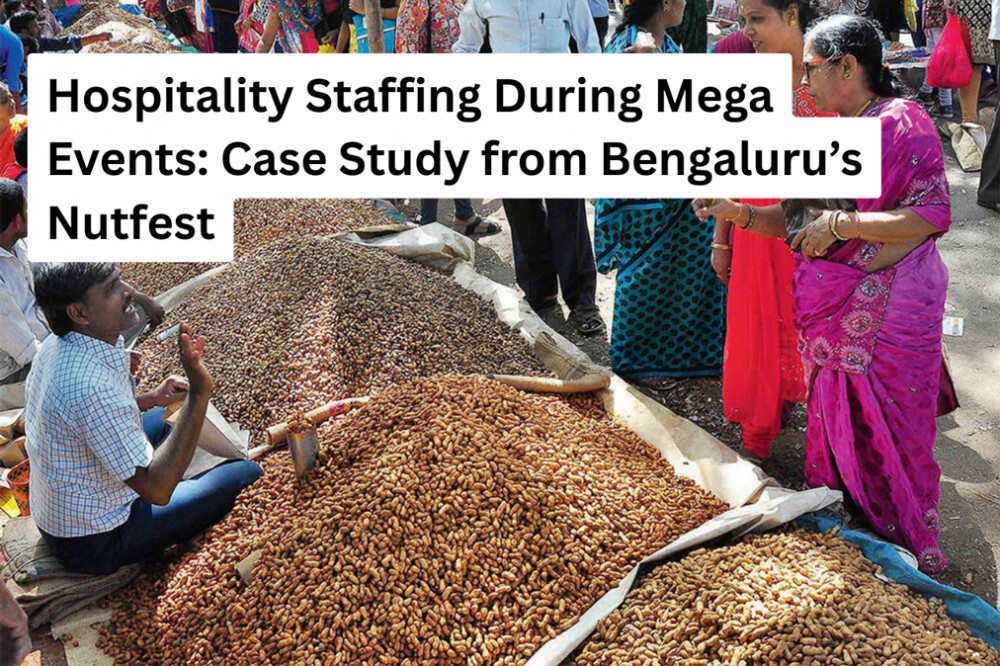
What ‘Freedom to Work’ Means for Hospitality Staff in 2025

The hospitality sector in India is undergoing perhaps its most workforce-based transformation in 2025. The dialogue is no longer limited to service standards, guest experiences, or luxury trends; it is now equally focused on work freedom inside hospitality in India.
The hospitality sector was once well known for strict scheduling, long shifts, and a military-like discipline; however, it is starting to open a door to hospitality work schedules with some flexibility in 2025. Hotels, resorts, restaurants, and even boutique hotels are reevaluating staff schedules, their schedules, and employee-first policies to increase flexibility and talent acquisition and retention.
Once an unspoken norm in the hotel industry, it continues to break and reshape a culture of burnout; the emergence of flexible shifts in hospitality is destroying the stereotype.
Why the Freedom to Work in Hospitality Matters
Superior human service is at the core of the hospitality business. Guests will remember the friendly welcome they received at check-in, enthusiastic service from their server, or the great room care by housekeeping staff long after they think about the guest room chandeliers that hung in the lobby when they were checking in. Yet, the human connection in these examples will be lost if the hotel team members are not physically rested and mentally willing.
The freedom to work in hospitality in India today means that:
- Staff are not centrally controlled with their work schedules.
- Shift swaps exist that can be completed online (generally in an App) without the management of piles of paper documenting each swap, allowing shift swapping to occur without weeks of paperwork.
- Team members can have a side hustle, attend classes or pursue personal reasons without feeling they will be losing their job.
In summary, a state of freedom is no longer a benefit — it is becoming a standard expectation.
The Change from Fixed to Flexible
Hospitality jobs and their associated hours of work have remained fixed for decades. The operational hours have been set at breakfast hours, lunch hours and check-in hours. The hospitality industry needed people who were available to work, not people who could do one job on one day or another job on a different day.
But in hospitality work hours flexibility in 2025, there is a clear shift:
- Compressed work weeks where workers accrue work hours over 3 or even 4 days in shifts that are longer in duration each day.
- Split-away shifts that allow wait or downtime between shifts, giving the workers time away from the workplace to complete personal errands or to rest.
- Remote operational roles for different functions like reservations, digital concierge, and guest relations.
The flexible shifts hotel industry model is especially suited to urban hotels and high-end resorts with real-time digital systems that allow for seamless relinquishment of key operational functions between shifts or in real-time.
Technology: Enabler of Freedom to Work
The hospitality sector in India has traditionally been a leader in the adoption of technology for customer-facing experiences, e.g., online bookings, contactless check-ins, and AI-powered concierge services. The boom in technology is now extending to employee scheduling.
Platforms such as online workforce management and artificial intelligence-driven scheduling tools will help the hospitality work flexibility 2025 by:
- Forecasting high guest occupancy periods and scheduling shifts accordingly.
- Allowing employees to take hold of available shifts, pending employees' availability.
- Distributing employee workload fairly and evenly, avoiding “hostage” in a restaurant context.
These technological advances ensure that employees can exercise some control over their hours until customer demand requires which may occur during festival and wedding periods.
The Connection Between Flexibility and Retention
Retention has always been a challenge in hospitality, especially in India's metro cities with intense competition for skilled staff. A rigid workplace would drive many employees to swap jobs often in search of improved hours.
Hotels that have allowed genuine freedom to work in hospitality in India saw:
- Lower turnover rates occur as employees feel respected and valued.
- Higher productivity because employees were engaged and more likely to go above and beyond.
- Better training and development outcomes because engaged and happy staff members tend to stay longer, allowing hotels to invest in skill-building without the worry of losing talent too soon.
How Freedom Enhances Guest Experience
Not only do employees benefit from freedom. Guests benefit as well. Guests can see the difference when a hotel staff member is rested, engaged, and filled with enthusiasm. Research demonstrates that flexible shift scheduling can improve service rating by up to 15-20% as employees are better able to focus on their guests and more energised instead of distracted and stressed out.
When flexible shifts are provided in the hotel sector:
- Front desk agents welcome the guests at midnight check-ins, not with tiredness, but with pure energy.
- Housekeeping teams keep busy and focused without having to rush through cleaning the room each day.
- Food and beverage staff stay calm in a frenzied breakfast buffet, inciting chaos as others wait an hour for their order.
Happy staff equals happy guests, papering before and after service—and that will never change, even in 2025.
Millennials and Generation Z's Importance
The demands for freedom to work in hospitality in India are not only management decisions; this is a generational demand. Millennials and Gen Z work-oriented individuals place a priority on work-life integration over a career path. They seek:
- Time for hobbies and personal projects.
- Opportunities for travel each assignment.
- Jobs providing mental well-being, as well as holding on to financial security.
Employers providing workers in the hotel industry with flexible shifts are more likely to recruit from the younger generation, thus allowing them to hire a younger and dynamic workforce.
Barriers to Implementing Work Freedom
There will certainly be roadblocks to flexibility, such as:
- Scheduling coverage post no-shows.
- Organising teams with more than five employees.
- Feeling resentful if some staff have better shifts all the time.
Successful hotels implement effective scheduling plans, better communication, and fair rotation, overcoming work barriers.
What Freedom to Work Will Look Like in 2030
If the momentum remains, hospitality work flexibility in 2025 will be the minimum baseline for progressive policies in 2030:
- On-demand staffing pools, letting hotels call on trained freelancers for events, etc.
- International employee rotation programs allow employees to work in a different city or country for a season.
- Working four-day work weeks in select hotel departments.
Instead of the rigid organisational hierarchy of the past, we are seeing a shift to a collaborative, choice-based culture.
In India, the ability to work in hospitality is not just a change in policy - it's a change in culture. In 2025, flexible shifts, compressed workweeks, and technology-enabled scheduling are assisting hotels in attracting and retaining top talent while increasing the guest experience.
The flexible shift hotel industry model shows that operational efficiency and employee mental health can co-exist. In this context, India's hospitality industry is not only reacting to industry trends worldwide but also providing a benchmark for how an employee-first mentality can lead to better businesses, better service, and better lives.
Related Blogs

The Rise of Boutique Hotels: Recruiting for Experience, Not Size
73 Views

Top 5 Hospitality Roles Most in Demand This Quarter
71 Views

Hospitality Staffing During Mega Events: Case Study from Bengaluru’s Nutfest
86 Views

Festival Hospitality: What Food Events Teach About Guest Management & Staffing
194 Views

Little Guests, Big Smiles: How Hotels Design Family-Friendly Experiences
171 Views